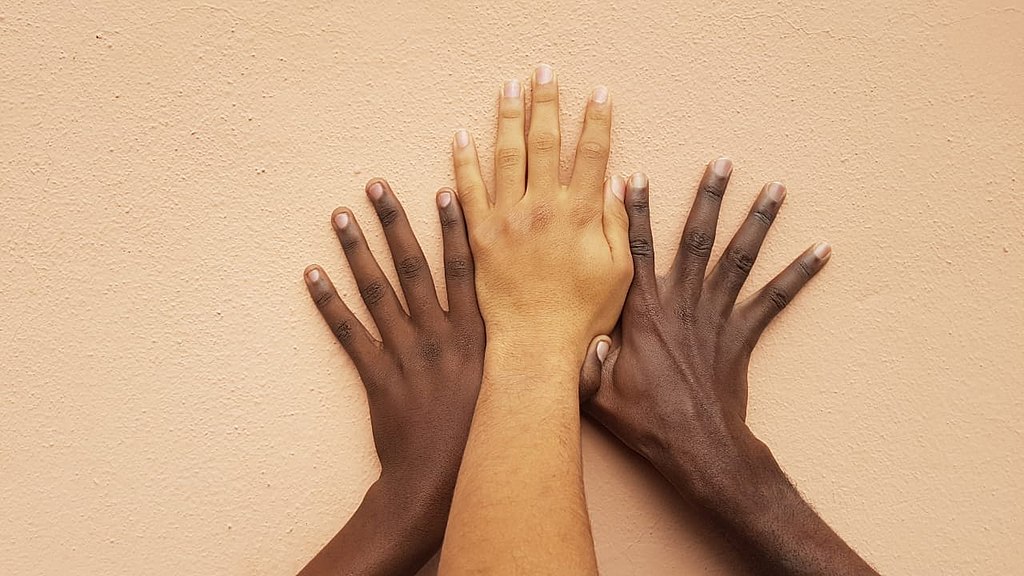INTERNATIONAL Human Solidarity Day is observed annually on December 20th and serves as a reminder of the importance of solidarity in addressing global challenges. This day underscores the significance of working together to promote unity and tackle issues such as poverty, inequality and climate change. In this article, we will explore the history and significance of International Human Solidarity Day, delve into how the day is celebrated in India, and shed light on the pivotal role played by NGOs in fostering solidarity to alleviate poverty and achieve the day’s overarching goals.
The history of International Human Solidarity Day
The United Nations General Assembly established International Human Solidarity Day in 2005, recognizing the need for a collective effort to address the pressing global issues faced by humanity. The resolution emphasized the importance of eradicating poverty and promoting solidarity as essential elements for building a better world. By designating December 20th as International Human Solidarity Day, the United Nations aimed to encourage governments, NGOs and individuals to reflect on the challenges faced by humanity and take concrete actions to foster unity.
Significance of International Human Solidarity Day
International Human Solidarity Day is significant for a variety of reasons. In a country as large and diverse as India, let’s explore some of these reasons:
Global unity in the face of challenges: International Human Solidarity Day holds significance in promoting a sense of global unity. In an interconnected world, where the impact of one nation’s actions can reverberate across borders, solidarity becomes crucial. By recognizing our shared humanity, the day encourages nations to collaborate in addressing challenges that transcend geographic boundaries.
Tackling poverty and inequality: Poverty and inequality remain persistent global issues. International Human Solidarity Day calls for joint efforts to alleviate poverty and bridge the gap between the affluent and the marginalized. Solidarity is not just a moral imperative but a pragmatic approach to achieving sustainable development and ensuring a dignified life for all.
Promoting sustainable development: Sustainable development requires a collective commitment to preserving the planet and ensuring the well-being of its inhabitants. International Human Solidarity Day aligns with the United Nations’ Sustainable Development Goals (SDGs), emphasizing the need for collaborative action to address environmental challenges, combat climate change, and build a sustainable future.
Celebrating International Human Solidarity Day in India
In India, the celebration of International Human Solidarity Day is an opportunity to reflect on the country’s progress in fostering solidarity and addressing socio-economic challenges. Several activities can be organized to mark the day and raise awareness about the importance of unity in achieving common goals:
Public awareness campaigns: NGOs, government agencies and civil society organizations can collaborate to organize awareness campaigns across the country. These campaigns can use various mediums, such as social media, workshops and public events, to disseminate information about the significance of solidarity and the role individuals can play in fostering unity.
Community engagement programs: Local communities can organize events that promote inclusivity and cooperation. This may include cultural festivals, educational seminars and community service projects aimed at addressing specific challenges faced by the community.
Collaborative projects: Encouraging partnerships between government bodies, NGOs and private enterprises can lead to the implementation of collaborative projects. These projects can focus on areas such as poverty alleviation, healthcare, education and environmental sustainability.
Youth involvement: Engaging young people is vital for building a future grounded in solidarity. Schools and colleges can organize discussions, competitions and volunteer activities that inspire youth to actively contribute to the well-being of society.
NGOs and human solidarity in India
NGOs play a pivotal role in promoting human solidarity in India. These organizations, driven by a commitment to social justice and inclusivity, work tirelessly to bridge gaps, empower marginalized communities and contribute to the overall well-being of society.
Alleviating poverty: NGOs in India are actively involved in poverty alleviation programs. By implementing sustainable development projects, providing vocational training, and offering financial support to marginalized communities, these organizations contribute significantly to reducing poverty and improving the quality of life for those in need.
Community development initiatives: Many NGOs focus on holistic community development initiatives. These projects address not only economic challenges but also social and cultural aspects, fostering a sense of community and shared responsibility.
Healthcare access: NGOs in India play a vital role in improving healthcare access, especially in remote and underserved areas. By establishing medical facilities, conducting health awareness campaigns, and offering preventive care, these organizations contribute to enhancing the overall health and well-being of communities.
Education for all: Educational inequality is a significant challenge in India. NGOs work towards ensuring access to quality education for all, with a particular emphasis on marginalized groups. Scholarships, skill development programs and advocacy for inclusive education policies are common initiatives undertaken by these organizations.
Environmental sustainability: Recognizing the urgency of environmental challenges, many NGOs in India actively participate in sustainable development projects. Through afforestation, waste management initiatives and advocacy for eco-friendly practices, these organizations contribute to the global effort to combat climate change.
Support NGOs on Give.do this International Human Solidarity Day
International Human Solidarity Day serves as a powerful reminder of our shared responsibility to build a more equitable and sustainable world. In India, the celebration of this day provides an opportunity for individuals, communities and organizations to come together in the spirit of solidarity. NGOs, with their dedication to social causes, play a crucial role in translating the principles of human solidarity into tangible actions that alleviate poverty, promote inclusivity and contribute to the achievement of global development goals.
As we commemorate International Human Solidarity Day, let us reaffirm our commitment to working together for a better and more united world. Explore fundraisers on Give.do here and do your part to bring the world closer together in the effort to alleviate poverty and suffering.
Discover more from Give.do
Subscribe to get the latest posts to your email.


Leave a Reply